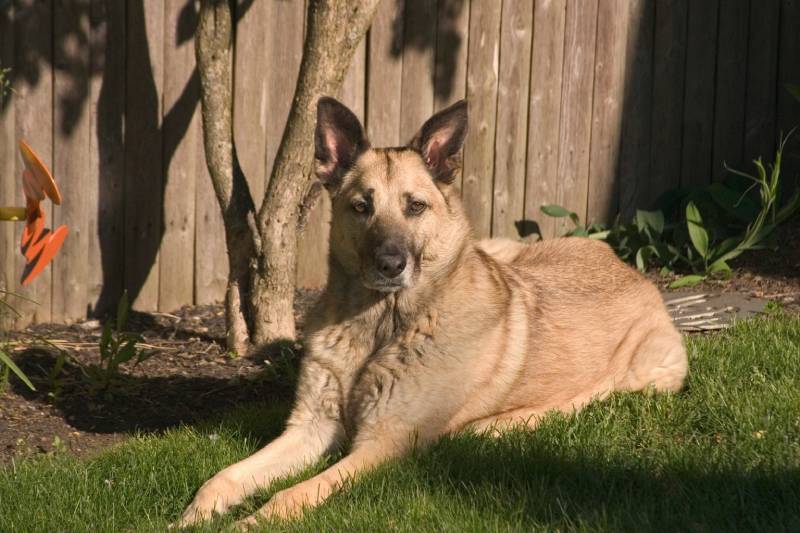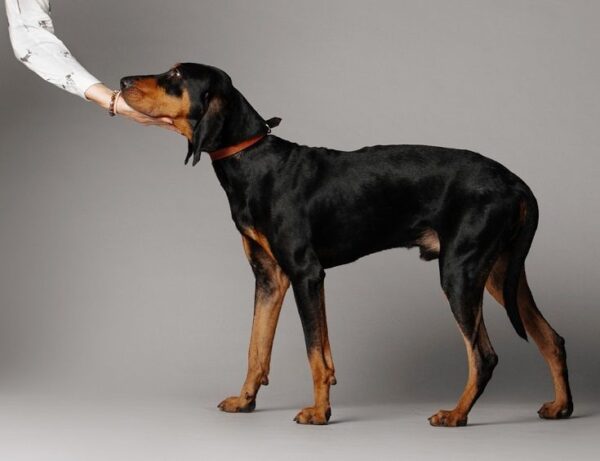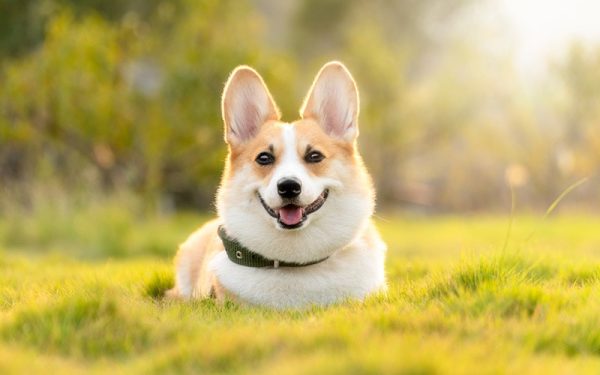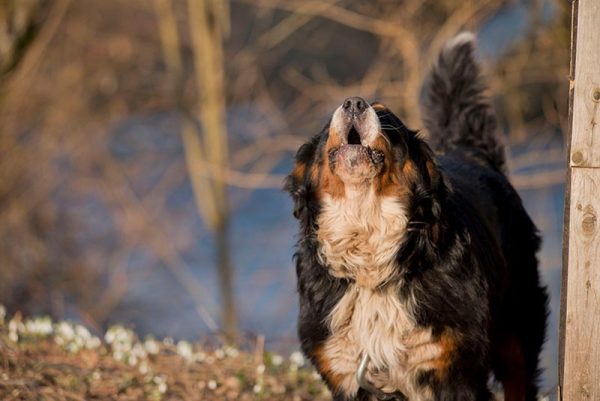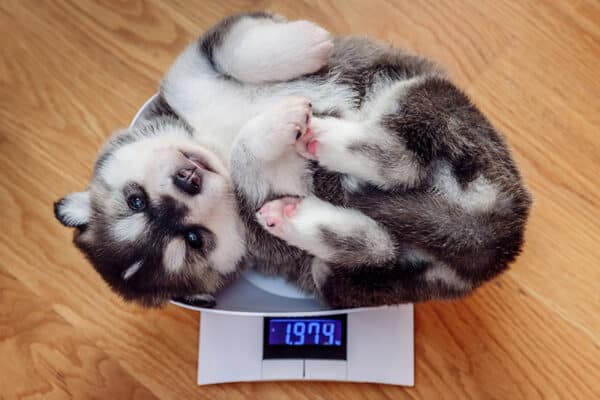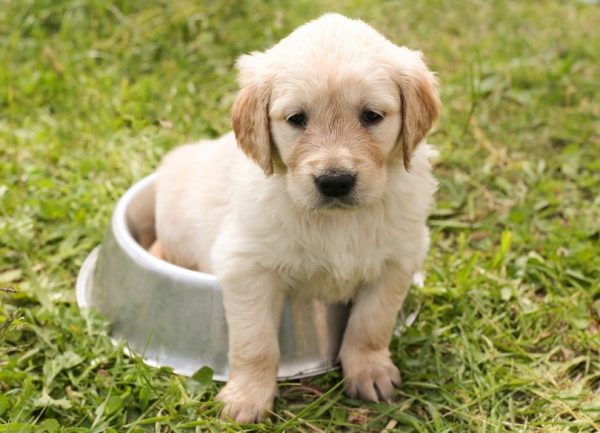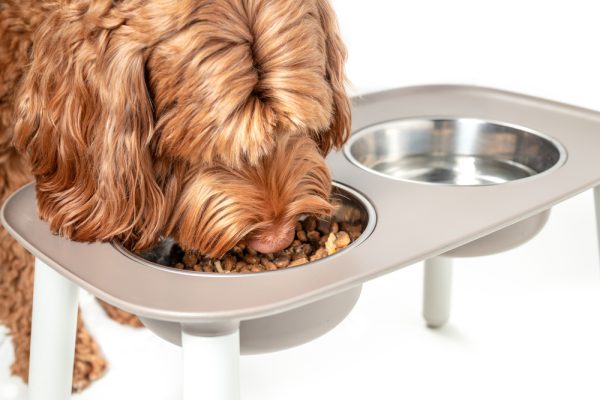In this article
View 8 More +The Chinook is a large, muscular dog bred in New Hampshire during the early 20th century as an all-purpose sled dog. Though they were originally used for drafting and sled dog racing, most modern Chinooks are kept as companions. These beautiful dogs are highly sought-after and extremely rare, however. Read on to learn more about this breed, including how to care for them and what to expect from them as pets.
Breed Overview
Height:
22–26 inches
Weight:
50–90 pounds
Lifespan:
12–15 years
Colors:
Red gold, fawn, tawny, palomino, gray red, silver fawn
Suitable for:
Active families
Temperament:
Affectionate, intelligent, social, calm, easygoing
The Chinook is a big, lovable, and affectionate dog breed highly sought after for its gorgeous appearance and pleasant temperament. Though they’re classified as working dogs, thanks to their background as hardworking sled dogs, Chinooks are extremely laid back and relatively easy to take care of.
Chinook Characteristics

Chinook Puppies
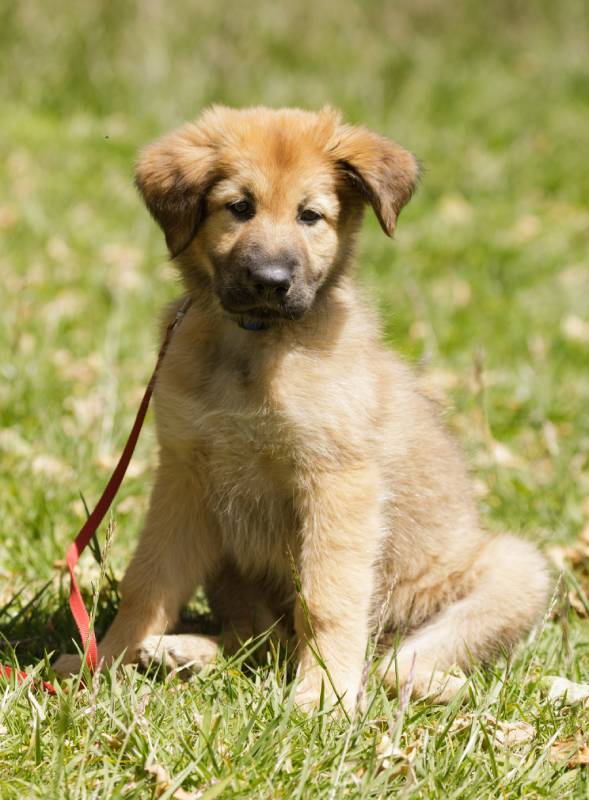
Chinooks are an extremely rare breed that was once on the verge of extinction. Though they are no longer teetering on that edge anymore, finding puppies to adopt can be an extremely lengthy and challenging process, as only 100 or so puppies are born annually.
There are several Chinook breeders scattered throughout North America. These breeders are very careful in choosing the placements for their puppies, often following the pups they’ve produced over their entire lifespan. This is exactly the type of thing you want from a breeder, as it shows they care deeply about the health of the puppies they produce. However, it can make finding available pups for adoption almost impossible. Even the American Kennel Club’s Marketplace has zero puppies available at the time of writing, a very rare thing to see.
Chinook Origin & History
The origin of the Chinook came to be because of Arthur Walden’s passion for dog sledding. Walden wanted to breed the ideal sled dog that could withstand the challenges of the sport, so he crossbred a mastiff-type with a Greenland Husky. Thus, the Chinook was born!
It took a while for the Chinook to get recognized. But in 2013, the American Kennel Club added them to their official list of AKC Working Dogs.

Temperament & Intelligence of the Chinook 🧠
Chinooks are affectionate and playful companions. Though they are large, they’re not aggressive, and some can even be shy at times.
Chinooks are highly intelligent and very quick learners. They enjoy training and mental stimulation and will stop at nothing to please their owners. They form very tight bonds with their human family members and require daily companionship. These dogs are highly people-oriented and require daily companionship, so this isn’t a great breed if you’re away on business or vacations often.
Chinooks are generally indifferent toward strangers. If you have guests over, you’ll likely find your pup stuck like Velcro to your side until they’ve had a chance to get a feel for the strangers. They may bark at new people but generally will not advance beyond giving them a warning. They can be good watchdogs, but they’re not destined to guard or protect.
Are These Dogs Good for Families? 👪
Chinooks are a fantastic breed to consider if you have children. These calm, people-oriented dogs have a special way with kids. Their extremely patient, tolerant, and laid back temperament fits in well with the often chaotic home with children.
However, it would be wise to consider your child’s size and age before bringing home a Chinook. Even though they’re so sweet and even-tempered, these dogs may inadvertently injure a child with their sheer size. Proper supervision will be required until your kids are a bit older and able to understand how to respect animals properly.
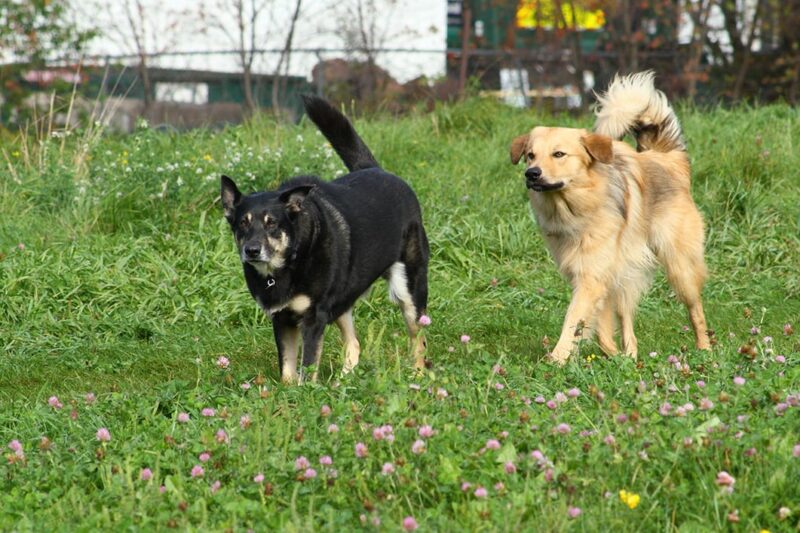
Does This Breed Get Along With Other Pets? 🐶 😽
Chinooks can absolutely get along well with other pets, including dogs, cats, and critters. These non-aggressive dogs were bred to work in a pack as sled dogs, so they relish time spent with other pups and even the family cat. They have a low to average prey drive, which may make them prone to chasing smaller animals. Proper training and early socialization are key to ensuring your Chinook can live harmoniously alongside other family pets.

Things to Know When Owning a Chinook
Food & Diet Requirements🦴
The best diet for a Chinook is one that’s complete and balanced for their life stage and energy needs. The exact food you choose will depend on their age, size, and activity level. Your veterinarian can make recommendations for food, including how much and what type to feed, based on your pup’s health status.
Puppies should be fed food formulated for large breed puppies as it encourages slow growth. This food will have the proper balance of calcium, phosphorus, fat, and calories to ensure your Chinook grows at an appropriate rate and will be less likely to develop orthopedic diseases like hip or elbow dysplasia.
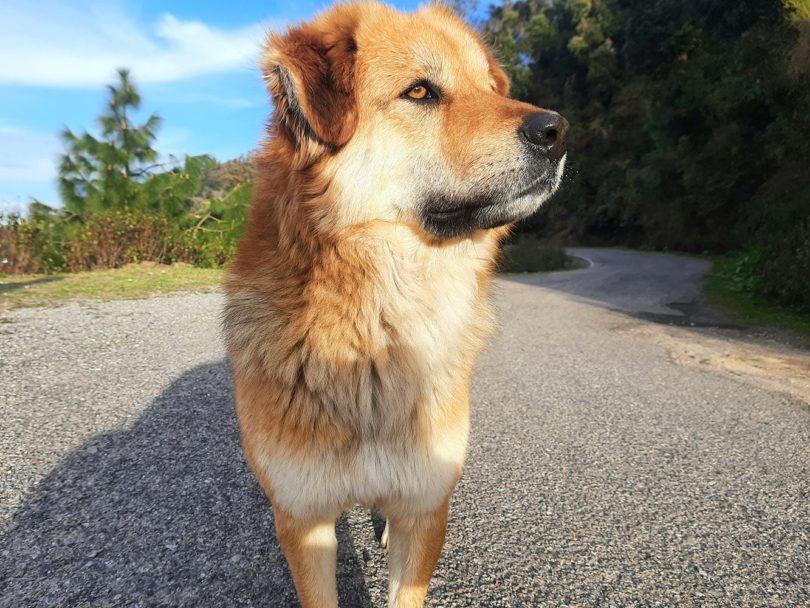
Exercise 🐕
Though they are born and bred working dogs, Chinooks are not particularly busy, nor are they workaholics. They don’t require a ridiculous amount of exercise, and as long as they’re given outlets for physical and mental activity, they’ll be happy settling beside you on the sofa at the end of the day.
Chinooks need 30 to 60 minutes of exercise every day. They enjoy going for walks and running in secure areas, like fenced-in dog parks.
If your pup still appears to have a lot of energy to burn after you exercise them, you might consider signing them up for pulling activities like sledding since that’s what this breed was born to do. Chinooks can also excel in carting, obedience, agility, and search-and-rescue work.
Training 🎾
Begin training and socializing your Chinook puppy when you bring them home to increase their chances of growing into a well-adjusted and well-mannered adult. Thankfully, Chinooks are relatively easy to train if you use positive reinforcement techniques.
Chinooks may develop inappropriate behaviors from a young age. Their enthusiasm and affectionate temperament make them likely to jump when excited and get in their favorite human’s faces. While this is a sweet way to be greeted, it’s not recommended that this behavior be allowed to continue. You may want to collaborate with a professional trainer to help redirect inappropriate behaviors and reinforce desirable ones.
Unlike many other sledding breeds, these dogs are reliable off-leash, but you shouldn’t test this in areas that aren’t properly secured.
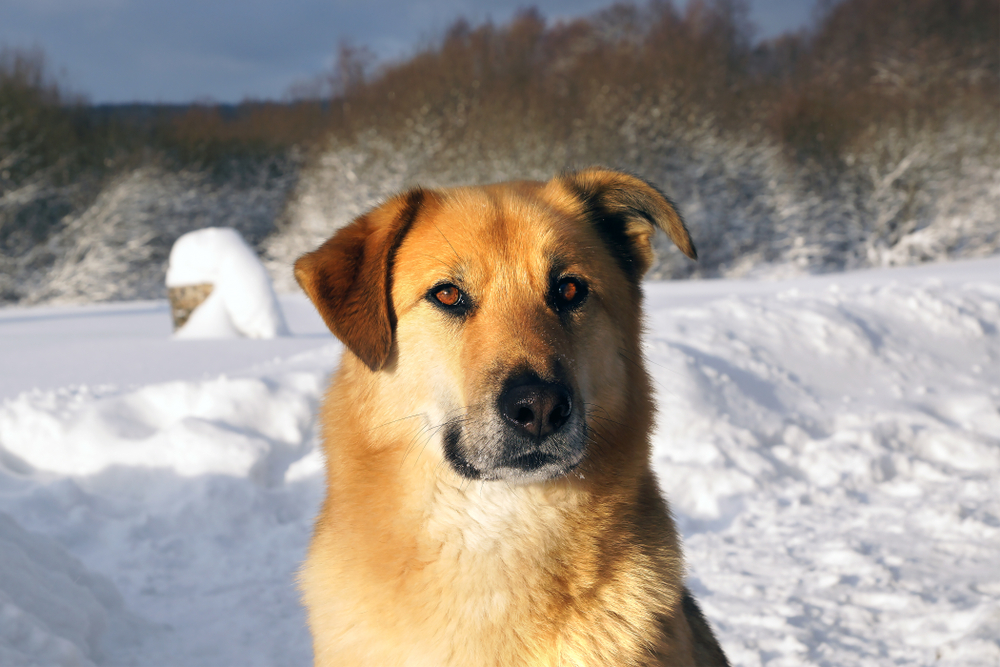
Grooming ✂️
Chinooks have a plush double coat that’s relatively easy to look after. They do shed throughout the year, but weekly brushings will help take care of some of the loose hair and dirt to keep your pup looking their best. You’ll need to be more diligent with your brushing sessions during the twice-yearly shedding season.
Baths are only required when absolutely necessary, as overbathing can strip their coat’s natural oils and lead to skin irritation.
Health and Conditions 🏥
The Chinook is a relatively healthy breed, though it may be prone to traditional hereditary issues often seen in many other breeds. This can include conditions such as epilepsy, hip dysplasia, eye problems, and atopy. They may also develop cryptorchidism (the absence of one of both testes from the scrotum) and gastrointestinal issues.
- Atopy
- Gastrointestinal conditions
- Eye conditions
- Hip dysplasia
- Epilepsy
Male vs Female
The only difference between male and female Chinooks is their size. Males generally fall into the 24-to-26-inch range in height and 55-to-90-pound range in weight. Females are slightly smaller, at 22 to 24 inches tall, and weigh between 50 to 65 pounds.
While some owners claim there to be temperament differences between the sexes, this appears to be anecdotal at best.

3 Little-Known Facts About the Chinook
1. The Chinook was developed thanks to one man.
As mentioned before, Arthur Treadwell Walden, a Klondike Gold Rush adventurer, was the sole creator of the Chinook. The breed is derived from a single male born in 1917. This dog, named Chinook, was Walden’s lead dog and stud.
2. Chinooks have almost gone extinct.
According to the Guinness Book of World Records, the Chinook is one of the rarest dog breeds. At one point, there were only 28 left in the world. Despite facing extinction several times, the breed remains. However, only around 100 puppies are born every year, so they’re not entirely out of the woods just yet.
3. Chinooks are the official state dog of New Hampshire.
Chinooks were developed during the early 20th century in New Hampshire and remain the only breed to have originated in the state. It shouldn’t come as too much of a surprise, then, that New Hampshire made them their official state dog in 2010.

Final Thoughts
Chinooks are a unique and beautiful dog breed with many redeeming qualities. Their intelligence and affectionate temperament make them a dream for families, and their easygoing attitude can make them ideal pets for homes with other animals. Chinooks are steady and dependent dogs that are good with people and kids. They’re non-aggressive and may be prone to shyness.
Though they’re purebred and the genetic pool is small, Chinooks have relatively few health conditions compared to other similar breeds. They can live to be 15 years old, giving them a decent lifespan for their size.
All this said, Chinooks are extremely rare, so finding one to adopt may be very challenging. If you have your heart set on this breed, begin the search for a reputable breeder as soon as possible. There are several options scattered across the continent, but you may need to be open to flying your new puppy in from overseas.
Featured Image Credit: Linda Fish, Shutterstock
